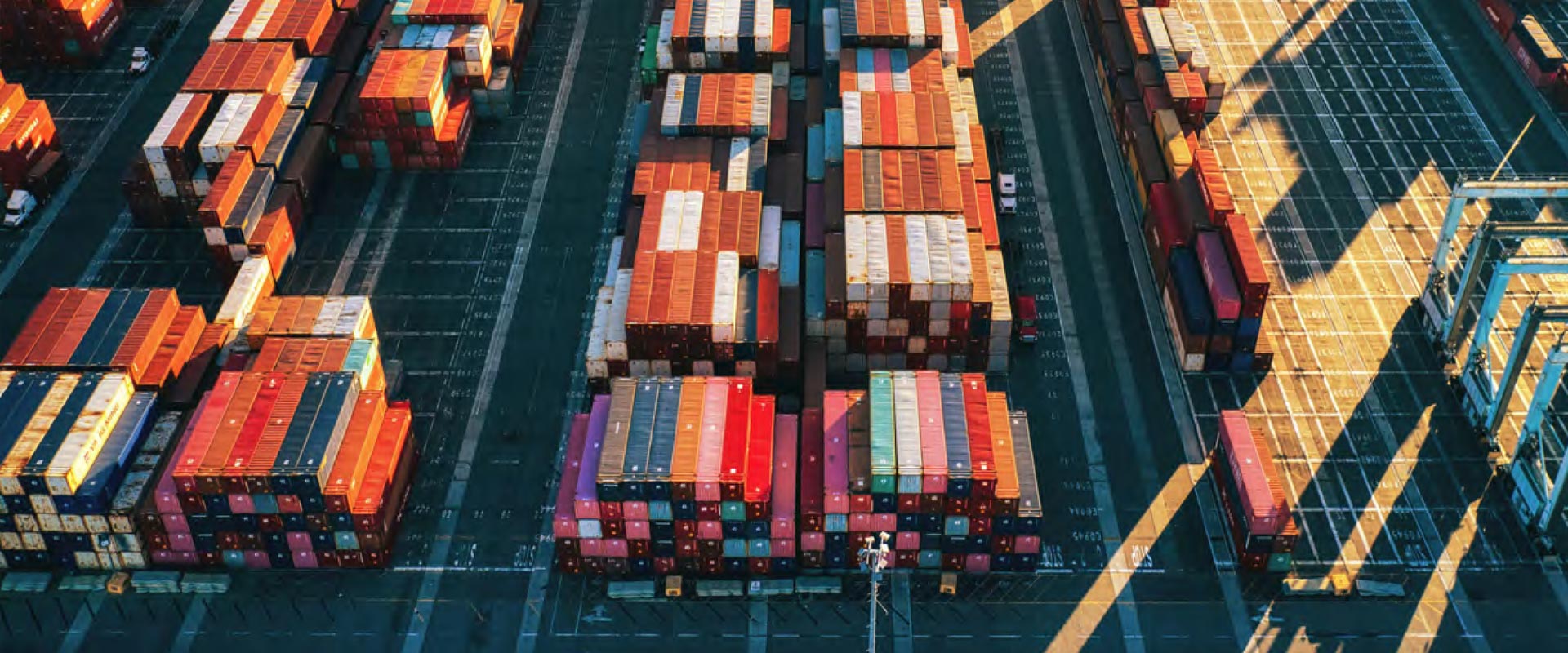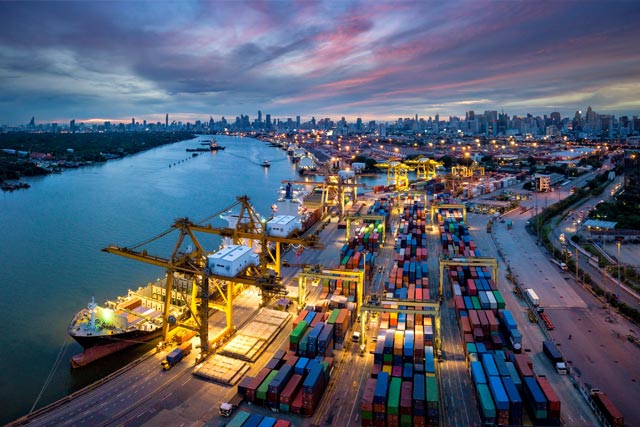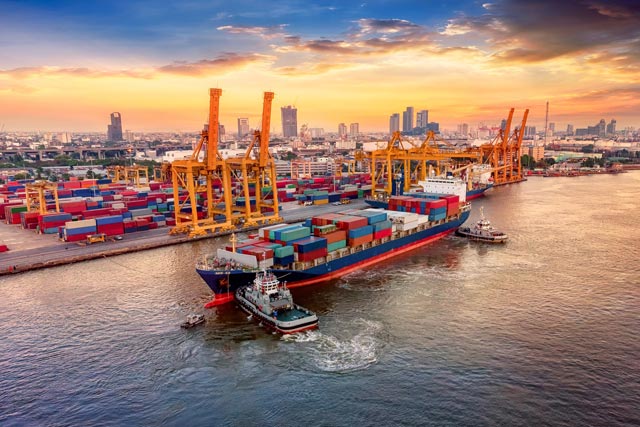- UK exporters anticipate growth in 2024 despite geopolitical tensions, with 87% expecting increased turnover from exports.
- Geopolitical risks prompt UK companies to reconsider supply chain reliance, with 61% considering relocating parts of their operations.
- AI holds promise for boosting productivity in global trade, with 55% of UK businesses foreseeing significant benefits.
- Despite optimism, only 35% of UK exporters integrate dedicated supply chain insurance into risk mitigation strategies
Survey Topics
Key Takeaways
The Covid-19 pandemic. The invasion of Ukraine. Revived tensions in the Middle East. Crisis after crisis has created a challenging and uncertain environment for exporters. But could 2024 bring some light at the end of the tunnel? Or are businesses emerging from recession wearing rose-tinted glasses?
To find out, we polled over 3,000 exporters across the UK, France, Germany, Italy, Poland, Spain, China and the US for the third edition of our Global Survey.
UK exporters see brighter year ahead but non-payment risk remains a top concern
In the UK, almost 9 in 10 (87%) businesses expect turnover generated through exports to increase by more than +2% in 2024, up from 83% of exporters surveyed this time last year.
In fact, UK businesses expect slightly more pronounced growth in export-related revenue, with 84% of those surveyed predicting export prices will grow by as much as +10% in 2024, compared to 79% who predicted growth in the same bracket last year. What’s more, only 2% of UK firms expect their revenues from exports to decrease this year, down from 14% in 2023. This confirms firms’ expectations that global trade will bottom-out from last year’s recession.
While exporters foresee revenue growth this year, it will not come without its challenges. As for the top three threats to export activity, UK companies are most concerned about (geo)political risk and protectionism (74%), shortages of inputs and labor (49%) and financing and non-payment risk (39%).
Figure 1: Expectations for export turnover growth in 2024, % of total companies
Geopolitics spurring selective globalisation
Rising (geo)political and protectionism concerns, such as ongoing conflict in Ukraine and the Red Sea shipping crisis, have highlighted pressure points in international trade. Tensions are pushing UK companies to substantially dial back their offshore supply chain reliance, the research shows.
More than six in 10 (61%) UK companies exposed to long supply chains are considering relocating parts of it due to increasing (geo)political risks and half (50%) of them expect reshoring to continue at a similar rate over the next two years, against nearly one in three (29%) that expect reshoring to accelerate. The majority of those considering relocating their production sites favour Western Europe and North America.
Why isn’t more supply chain relocation taking place? The top 3 hurdles identified by the research are: high costs associated with trade (e.g. due to the lack of free-trade agreements), operations and investment; labour-related concerns (availability, costs and regulation) and the quality and availability of suppliers, with the latter two more important hurdles for UK exporters compared to international counterparts.
Figure 2: Top three risks threatening the success of export activity in 2024, % of total corporates
Will AI supercharge global trade?
For the first time in Allianz Trade’s Global Survey series, we asked businesses about the impact of AI. Given the rapid uptake and availability of generative AI tools, it is perhaps unsurprising that the majority (55%) of UK businesses said the technology would significantly increase their company’s productivity, and 44% said it would moderately increase productivity. Only 1% thought it would have no impact.
Currently, UK businesses said they use AI most to monitor supply chains (29%). However, we foresee five main effects on global trade:
- Potentially boost the overall economy through productivity gains should increase annual global exports by 0.02pp to 0.2pp
- Increase trade of goods that will take advantage of the AI revolution such as computers, electronics and robotics
- Improve the functioning of global value chains (GVCs)
- Reduce costs and increase export opportunities for corporates
- Increase services trade thanks to increased cross-border trade of data and digital services
Figure 3: Digital activity that contributes the most to international development, % of respondents
Figure 4: Digital activity that contributes the most to international development, % of respondents
Partner in trade risks
While exporters are more optimistic about growth, they are not blind to the risks. More than two in five UK businesses (42%) said they are already taking action to improve their supply chain risk management. However, only a third (35%) of them said purchasing dedicated supply chain insurance forms part of their risk mitigation measures.
As companies navigate increasingly complex supply chains, intensifying geopolitical tensions and quick technological advancement, the important role for experts in trade risk to advise and help exporters manage their exposures and harness new opportunities as the world emerges from recession is significant.
Learn more about how trade credit insurance can support your business’s export agenda.



